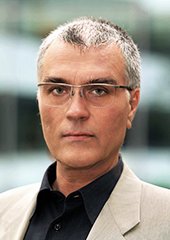About this Collection: Introduction to the PPP-Project
What is this?
Predictive processing is at the cutting edge of theoretical cognitive science, and its philosophical implications are currently being hotly debated. However, philosophical newcomers to the debate can easily be deterred by the copious technical details, and given the pace of developments, it can be a struggle to stay up-to-date. As a primarily philosophical project, the main goal of this initiative is to offer a first introduction to the debate on predictive processing and to begin a more systematic discussion from a conceptual and metatheoretical perspective. In this second collection from the MIND Group, the number of invited authors is much smaller than for our first collection, and the papers have a narrower thematic focus in the philosophy of cognitive science, deliberately picking out only one topic of especially high relevance and urgency. We want to provide a service to the community by offering a concerted voice and a brief introduction for non-specialists.
Continuing the spirit of the Open MIND-project we also wanted to make our academic work available independently of a publisher who would eventually sell our own intellectual property back to us and our peers while simultaneously locking it behind a pay wall, making it inaccessible to students in countries such as Brazil, India and China. Once again, we have achieved a professional form of quality control via a systematic, two-layered, but journal-independent peer-review process — and we have released the results faster than would existing and established institutions of academic publishing. We hope you find the electronic resource we have created helpful for your own research.
Thomas Metzinger and Wanja Wiese
Johannes Gutenberg-Universität Mainz, March 2017
Who did this?
The editors
Financial funding
A workshop held in May 2016 was generously supported by the Barbara Wengeler Foundation and the Frankfurt Institute for Advanced Study. Thomas Metzinger was supported by a 5-year Fellowship of the Gutenberg Research College.

